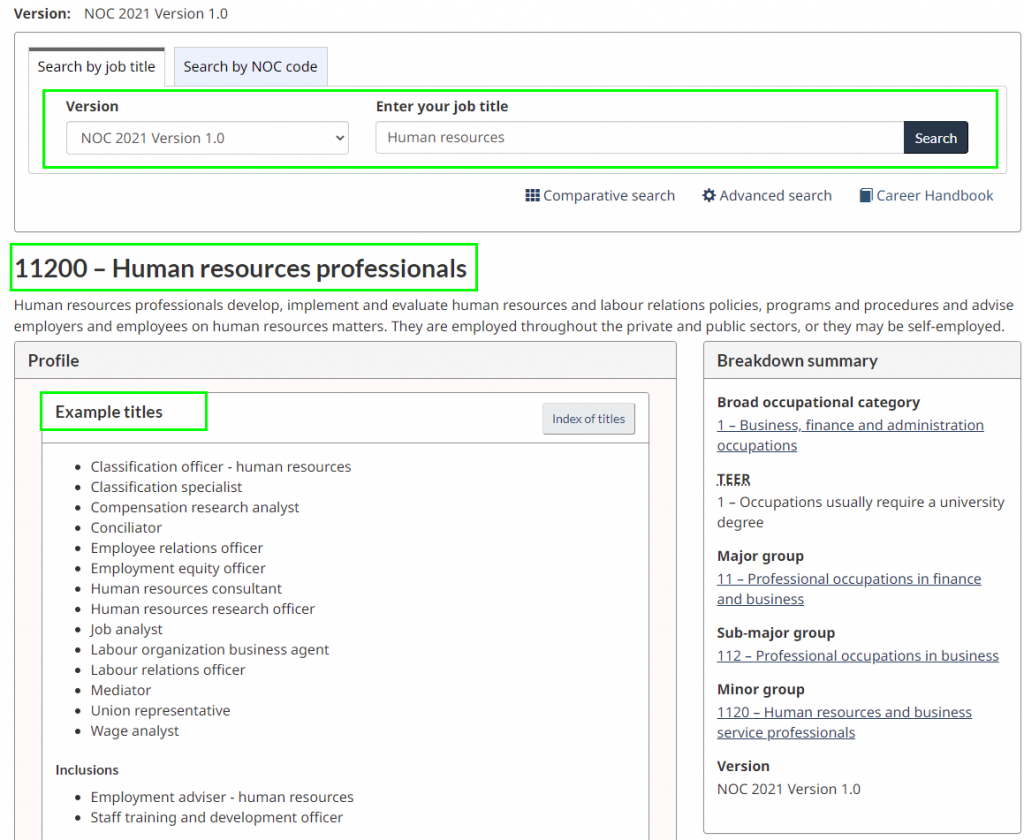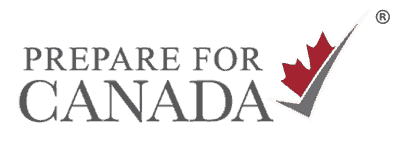
Thousands of people work in human resources jobs in Canada. It’s a popular career choice that can lead you down many paths. All types of businesses need human resource (HR) professionals to assist with operations. With HR job prospects looking good over the next few years, it’s a great career option for newcomers to Canada. Plus, human resource salaries can offer a good quality of life in Canada.
Many human resources jobs require a university degree or college diploma in human resources management or a related field (i.e., business administration, industrial relations, commerce, or psychology). Also, some employers may require you to hold a Chartered Professional in Human Resources (CPHR) designation. Prepare to continue your human resources career in Canada by reading this helpful overview.
Advertisement:
Contents
- How to Immigrate to Canada as a Human Resources Professional
- What to Expect When Pursuing a Human Resources Career in Canada
- Requirements to Work in Human Resources in Canada
- Upgrading Your Skills to Meet Human Resources Job Requirements
- Bridging Programs for Human Resources Careers in Canada
- Human Resources Schools in Canada
- Human Resources (HR) Associations in Canada
- How to Find Your First Human Resources Job in Canada
- How Much Do Human Resources Professionals Make in Canada?
- Best Provinces to Work in Canada as a Human Resources Based on Salary & Lifestyle
How to Immigrate to Canada as a Human Resources Professional
There are several ways to pursue a human resources career in Canada. Obtaining the CPHR designation can give you an advantage over other job candidates. Established in 1994, CPHR is the national voice of HR associations from across the country. However, since human resources is not a regulated profession in Canada, you may be able to find an HR position when you arrive. The average human resource salary is attractive for many internationally experienced professionals looking to continue their careers.
Before You Move to Canada to Pursue a Human Resources Career
Advertisement:
The more research you do before you arrive, the better your chances of finding a job in Canada. There are steps that you can take before you move to Canada to make it easier and faster to secure an HR job in Canada:
- Attend the free webinar What to Know about the Canadian Job Market to learn more about the labour market.
- Research the Canadian job market to learn what HR qualifications employers look for and how they will view your international qualifications.
- Learn more about the CPHR designation, the most sought-after mark for HR professionals in Canada.
- Check with provincial or territorial HR associations to find out what documents you need to bring and verify if they need to be translated. You may need to use a professional translation service in Canada.
- Understand how HR is practiced in Canada and familiarize yourself with HR legislation in the province where you plan to settle.
- Prepare your professional human resources career documents such as official education, reference letters, testimonials, and recommendations while in your home country.
- Assess your language skills by taking an online self-assessment on the Centre for Canadian Language Benchmarks website.
- Improve your language skills. Even if you speak fluent English or French, it’s helpful to improve your language skills. Enroll in language classes while you’re in your home country and continue them when you arrive in Canada.
- Research human resource salary and benefits information.
- Check with the professional association governing your occupation in your home country and find out if they have any links with similar associations in Canada.

What to Expect When Pursuing a Human Resources Career in Canada
Job prospects vary in Canada for human resources professionals, so it’s important to carefully research national, provincial, and local job markets. Your research will allow you to match your skills and experience with labour market needs and continue your career in Canada.
Employment Outlook for Human Resources Jobs in Canada
The outlook for human resources jobs is balanced. There is about an equal number of openings as people seeking jobs. Companies are always looking for HR managers, specialists, and generalists. According to the Government of Canada Job Bank, HR job prospects are good in most provinces. There are expected to be 48,600 new openings between 2022-2031 and slightly fewer professionals to fill these jobs. This is a good opportunity for newcomers and internationally trained HR professionals.
Start Your Research with the NOC Code for Human Resources Jobs in Canada
The National Occupational Classification (NOC) code for Human Resources Professionals is NOC 11200. This NOC provides a standard definition of HR jobs in Canada and is used by various groups, including job seekers. Before searching for an HR job, it’s helpful to read the NOC description to ensure that you perform similar job duties in your home country. You can also find example job titles that HR professionals use in Canada. This will be helpful when you begin your human resources career search.

Other Human Resources job titles include:
Advertisement:
- Human resources and recruitment officers (12101)
- Human resources managers (10011)
- Personnel clerks (14102)
Requirements to Work in Human Resources in Canada
The requirements for human resources jobs can vary by company. HR is a non-regulated profession in Canada. However, some employers do ask for your credentials to be evaluated. Mostly though, they will give you a project to test you and consider your professional references.
Some companies may request an education evaluation to assess your academic background. However, before you spend money, it’s best to find out if the company you are applying to requires it.
The same rule applies if you plan to attend a college or university program to upgrade your skills. Contact the school that you want to attend first to find out if you need an education evaluation and ask if they have a preferred provider.
Make sure to showcase your international education and skills. Try to build on your existing knowledge and skills and explore your options before you decide if you need further education.
For example, your international credentials and experience may allow you to get advanced standing, transfer some of your credits or benefit from prior learning assessment options. This way you may be able to complete your program faster and without spending more money or repeating the education you already have.
Credentials Assessment Services for HR Professionals
Credential recognition is a process to verify and assess a person’s skills, competencies, and credentials in a fair and consistent manner. Several agencies assess international education credentials to help newcomers to Canada access the education and employment they need.
World Education Services (WES) – Ontario
International Qualifications Assessment Service (IQAS) – Alberta
The International Credential Evaluation Service (ICES) – British Columbia
To find more organizations and agencies providing credential evaluation, assessment and qualification recognition services click here.
Related Post:
How do Education Evaluation and Credential Recognition Differ (Infographic)
Upgrading Your Skills to Meet Human Resources Job Requirements

There are various ways you can upgrade your skills to meet job requirements in Canada. Canadian employers put a high emphasis on soft skills. These are best described as attributes that enhance your interactions, job performance, and career prospects. Unlike your hard skills, you can apply your soft skills broadly.
Soft skills, such as communication, teamwork, and collaboration are important for HR professionals. Identifying the soft skills that you may need to improve is crucial. If your hard skills get you an interview, most likely it’s your soft skills that will get you the job and allow you to succeed.
You may be able to take courses through professional associations and post-secondary institutions. You can also take advantage of bridging programs or other courses and workshops to open up HR job opportunities.
Language Skills for Human Resources Jobs
You may have strong HR skills, but you may need more training or skills upgrading to achieve success in the workplace. This is especially relevant to your language skills.
Having strong skills in one or both of Canada’s official languages, English or French, is important to succeed in Canada. Whether you learn or improve English or French will depend on which of the two languages most people speak in the area where you live.
You may be eligible for Language Instruction for Newcomers to Canada (LINC) program. Otherwise, you can find other free or affordable classes in English as a Second Language (ESL) or French as a Second Language (FSL) classes through local school boards or settlement agencies.
There are even language courses to teach you professional terminologies, such as job-specific language training and Occupation Specific Language Training (OSLT) in Ontario. And, if you already speak one of Canada’s two official languages at a high level, learning the other one is a good option, as it may offer you better job opportunities.
Bridging Programs for Human Resources Careers in Canada
Bridging programs are a helpful way to transition your international experience and training to the Canadian workplace. In addition to the colleges, universities, and immigrant-serving agencies that offer Human Resources bridging programs, many also offer HR programs and continuing education courses that you can enroll in to advance your career.
HR Bridging Programs in Ontario
York University – Toronto
Bridging Program for Internationally Educated Professionals
This program assists internationally educated human resource professionals (IEHRPs) to gain employment at a level that matches their skills and experience and in roles appropriate to their career path. The program includes comprehensive skills and experience assessment, access to a specialized curriculum, mentorship, internship, and career coaching opportunities. It also helps IEHRPs earn their CHRP designation.
Accessible Community Counseling and Employment Services (ACCES) – Toronto and Brampton
This seven-week program helps internationally trained HR professionals find employment commensurate with their experience and education. Participants will have access to human resources professional networks, mentoring, guest speakers, as well as post-hire services to support workplace activities.
HR Bridging Programs in Alberta
Bredin Centre for Learning
Centre for Skilled and Internationally Trained Professionals
A no-cost program that helps internationally trained professionals understand and successfully move through the licensure and credential process in Canada. Those who are not part of a regulated profession can get up-to-date information about their profession.
Human Resources Schools in Canada
Many immigrants take further education after coming to Canada. Some even want to change careers or enhance their careers with a Ph.D. or MBA. There are over 80 colleges and universities that offer human resources degree and diploma programs.
Some of the top schools to study human resources include:
- University of Manitoba
- University of Windsor
- Trent University
- University of Toronto
- York University
- University of Calgary
- University of Winnipeg
- McGill University
- University of Regina
- Canadore College
- University of New Brunswick
- University of Lethbridge
- Queens University
- Western University
- Toronto Metropolitan University.
Click here for links to Canadian Universities and Colleges.
Human Resources (HR) Associations in Canada
The associations listed below provide additional information about the CPHR designation, professional development, education, and networking opportunities.
National Human Resources Associations
Chartered Professionals in Human Resources (CPHR) Canada
Provincial HR Associations
British Columbia
Chartered Professionals in Human Resources British Columbia and Yukon
Alberta
Chartered Professionals in Human Resources Alberta
Saskatchewan
Saskatchewan Association of Human Resource Professionals (SAHRP)
Manitoba
Chartered Professionals in Human Resource Management Manitoba (CPHR Manitoba)
Ontario
Human Resources Professionals Association (HRPA)
New Brunswick
Chartered Professionals in Human Resources New Brunswick
Nova Scotia
Chartered Professionals in Human Resources Nova Scotia
Newfoundland and Labrador
Chartered Professionals in Human Resources Newfoundland & Labrador
Quebec
Ordre des CRHA et CRIA du Québec (ORHRI)
HR Sector Councils
The following HR sector councils are partner organizations comprised of business, labour, and educational stakeholders. They operate at arm’s length from the Government of Canada and are a platform for stakeholders to share ideas, concerns, and perspectives about HR skills and issues. Working collaboratively, they find HR solutions for their specific sector.
HR sector councils enable human resource development by industry.
Canadian Agricultural Human Resource Council
Child Care Human Resources Sector Council (CCHRSC)
Cultural Human Resources Council
Food Processing Skills Canada (FPSC)
Mining Industry Human Resources Council (MiHR)Petroleum Labour Market Information (PetroLMI).
How to Find Your First Human Resources Job in Canada

The Canadian job market is competitive and sometimes the job search can be difficult. But there are many ways that you can search for jobs in HR:
- Broaden your search and include alternative careers.
- Seek out a mentor, such as a retired HR professional who could give you valuable advice and introduce you to their professional network.
- Join HR job-finding or networking clubs through immigrant-serving agencies.
- Attend HR job fairs and conferences and regularly check job boards.
- Have a strong and active presence on social media channels such as LinkedIn. Join HR LinkedIn groups, where you can contribute content, ask questions, and build connections.
Use Immigrant Settlement Agencies
Most settlement agencies and other immigrant-serving organizations offer help to find job vacancies, update your resume, write cover letters, and prepare for interviews. Click the link to find immigrant services in your area.
Immigrant Networks for HR Professionals
Professional immigrant networks are associations or networks created by and for immigrant professionals that seek to:
- Create a forum to contribute to and enrich their respective communities, and
- Assist members in finding meaningful employment and achieving their professional goals.
Activities that they offer include networking events, mentoring, information sessions, professional development, speaker events and training and connections to job opportunities.
The following professional immigrant networks mentioned do not exclusively serve the HR profession, but many HR professionals are members.
Immigrant Networks in Nova Scotia
There is one main resource to consult: Immigrant Services Association of Nova Scotia (isans)
Immigrant Networks in Ontario
Chinese Professionals Association of Canada
Javeriana University Professional Alumni Association in Canada
Informational Interviews for HR Jobs
An informational interview is a brief (20 – 30 minute) meeting that you schedule with someone currently working in HR. The purpose of the interview is to gather information and learn more about the profession in Canada.
Your goal should not be to get an HR job during an informational interview. Also, don’t bait and switch, by asking for an information interview and then requesting your contact to circulate your résumé to hiring managers. Also, be sure to ask meaningful questions. Avoid asking questions where you could easily find answers through a basic internet search (the annual sales of a publicly-held company, for example).
An information interview is also beneficial to get a professional’s first-hand HR experiences and impressions. The information interview typically should last no more than 30 minutes, so plan your time accordingly.
Networking for Human Resources Career Success

Good places to network include conferences, association luncheons, and chamber mixers for their convenience in meeting people, building relationships, and sharing information.
Effective networking can help you discover job leads, gather information about a company or the HR profession in Canada, and meet other HR professionals.
LinkedIn is a helpful online tool for networking. It is a great resource to connect with former colleagues and employers, search for jobs, and broaden your network. You can also connect with people who work in HR and join related groups and forums.
Writing Your HR Resume
Ideally, your resume should reflect you as an HR professional with experience in several key areas. It should reflect your role as responsible for hiring good people, acting as a coach, and providing direction to employees, imparting training, creating policies, dealing with employee relations, resolving disputes, etc.
What works best in HR is a functional resume, that clearly shows the years of HR experience and responsibilities. Consider these tips when writing your resume:
Highlight Your Achievements in Human Resources
Examples:
- Developed new HR policies and procedures to create a culture of trust, fairness, and inclusion.
- Implemented HR strategies to enhance recruitment programs and increase employee retention.
- Led the delivery of leadership development initiatives to enhance organizational effectiveness.
Use Power Verbs
Include power verbs like advocated, addressed, demonstrated, hired, assigned, interacted, interfaced, litigated, terminated, recruited, screened, guided, scheduled, etc. These portray your active involvement while describing your job functions.
List Your Key HR Roles
List your titles like HR Assistant, HR Specialist, HR Manager, etc. to show career progression and list any designations.
Make Your Resume Stand Out
Your resume must reflect your understanding of how HR policies impact the company’s overall business mission and goals. To make it stand out, go beyond job functions and state how your services made a difference to the organization. Also mention numbers: hires done, training taken, level of people trained, timelines in closing a hire, etc. Clearly identify how your achievements align with the human resources job description and requirements.
Highlight any awards you may have won. It may feel awkward to show them off if this is not common in your home country. However, in Canada, you need to speak about your awards and achievements.
Related Posts:
Cover Letter Format that Canadian Employers Notice
Interview Techniques for Human Resources Jobs
Once you have been invited for an interview, you will need to prepare for the interview. Conduct thorough research on the employer and think about why you are a perfect fit for the job. You need to be confident and calm in the interview, so practicing your answers is very important!
Within the HR sector, behavioural-based interviews are common and are geared to assess skills such as:
- Communication
- Planning and Organizing
- Problem-Solving
- Team Work
- Functional skills (HR policies and legislation).
For senior HR positions, questions can deal with your:
- Skills in managing a large department or team
- Ability to create HR strategy and policies
- Ability to design and deliver change management programs.
The following are sample questions that you may be asked during job interviews:
- It is important that you are up to date with all legislation, what do you know about the provincial Employment Standards?
- What is the reason for grievance procedures and tell us about your experience in handling grievances?
- Describe a time when you had to gather a large amount of data, analyze it objectively and make a decision or a recommendation based on the results.
How Much Do Human Resources Professionals Make in Canada?

Your specific HR certifications, experience, skills, and education all factor into your human resources salary in Canada. However, the median wage for an HR generalist in Canada is $36.22/hour. Annual salaries can go above $100,000 especially if you work for a large company. Hourly human resources salaries can start at as low as $16.70 in Newfoundland and they can reach as high as $68.27 per hour in Alberta.
Average Human Resources Salary in Canada
Human resources salaries can vary based on where you live. Here are the most recent human resources salary numbers in Canada:
| Province | Low ($/hour) | Median ($/hour) | High ($/hour) |
|---|---|---|---|
| Alberta | 26.92 | 39.82 | 68.27 |
| British Columbia | 25.00 | 38.00 | 57.95 |
| Manitoba | 21.63 | 34.62 | 55.13 |
| New Brunswick | 27.48 | 33.68 | 49.45 |
| Newfoundland and Labrador | 16.70 | 35.85 | 60.28 |
| Northwest Territories | 30.05 | 47.81 | 66.93 |
| Nova Scotia | 18.03 | 32.97 | 49.45 |
| Nunavut | 30.55 | 48.19 | 63.26 |
| Ontario | 23.08 | 36.06 | 55.94 |
| Prince Edward Island | 20.00 | 32.00 | 56.41 |
| Quebec | 23.00 | 35.53 | 54.95 |
| Saskatchewan | 23.00 | 41.80 | 57.69 |
| Yukon | 29.67 | 44.00 | 51.79 |
Best Provinces to Work in Canada as a Human Resources Based on Salary & Lifestyle
There are opportunities to work in human resources across Canada. Generally, mid-sized and large companies have HR departments. So HR opportunities may be greater in cities such as Toronto, Vancouver, Edmonton, and Calgary where many large companies are located. These cities also tend to have a higher average human resources salary.
Major Employers for Human Resources Jobs in Canada
HR jobs are found in large corporations, government agencies, educational institutions, agencies, and businesses of all sizes. Some of the top human resources employers in Canada include:
- Peninsula
- Mercer
- Deloitte
- EY (Ernst and Young)
- Accenture
- Bain & Company.
Common Human Resources Job Titles
When looking for HR jobs in Canada, it’s helpful to know the titles that employers use. Some HR jobs may be described differently in Canada.
Here are some of the most common HR titles:
- HR Coordinator
- HR Generalist
- HR Advisor
- HR Business Partner
- HR Consultant
- HR Manager
- HR Director
- Talent Acquisition Specialist
- Recruiter
- HRIS Analyst
- HR Executive.
To learn about companies that hire recent immigrants, visit Canada’s Best Diversity Employers website. These employers have received this designation because of their commitment to diversity, equity, and inclusion in workplace programs.
With a positive outlook for human resources jobs in Canada, now is the time to check out your options.
Interested in learning more about working in Canada? Check out our Finding a Job in Canada resource page. We can help you achieve your career goals in Canada.
